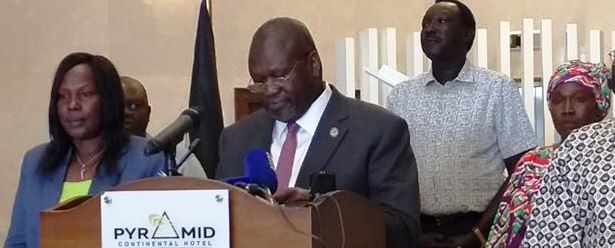South Sudan has confirmed its first case of COVID-19, first vice president announced on Sunday.
The case is the first one to be reported in South Sudan since the beginning of the outbreak in China in December 2019.
Riek Machar said a 29-year-old patient arrived in the country from Ethiopia on February 28, and that she was being treated in isolation.
“The patient is a 29-year-old female who arrived in the country from the Netherlands via Addis Ababa. She has no history of underlying or pre-existing illness,” he explained.
Machar, who is also the deputy head of the COVID-19 taskforce, said the National Ministry of Health would trace all the possible contacts of the patient since her arrival in Juba.
The government urged all residents of South Sudan to continue observing all instructions from health authorities, wash hands regularly and avoid large gatherings.
The first vice president further said restaurants will remain open but should only offer takeaway services, adding that shops selling non-food items must remain closed.
The government directed that all funeral gatherings must be limited to less than five people.
For its part, the United Nations in South Sudan said it has confirmed a case of COVID-19 among its staff.
In a statement extended to Radio Tamazuj, the United Nations stated that the Ministry of Health and the World Health Organization (WHO) are leading the investigation by epidemiologists to test people recently in contact with the patient in accordance with agreed protocols.
It added, “The patient has been resident in South Sudan for five weeks. She started working from home immediately after the onset of the symptoms and voluntarily requested to be tested to check her status with regard to COVID-19. The patient is recovering well”.
The UN has previously imposed a travel freeze on all staff travelling into the country, ensured staff who arrived prior to the ban are self-quarantined for 14 days, introduced work-from-home measures to reduce numbers of people in offices, and enforced social distancing rules and frequent hand washing by all personnel.
South Sudanese have been expressing concerns about the country's ability to handle a potential spread of the new virus.




